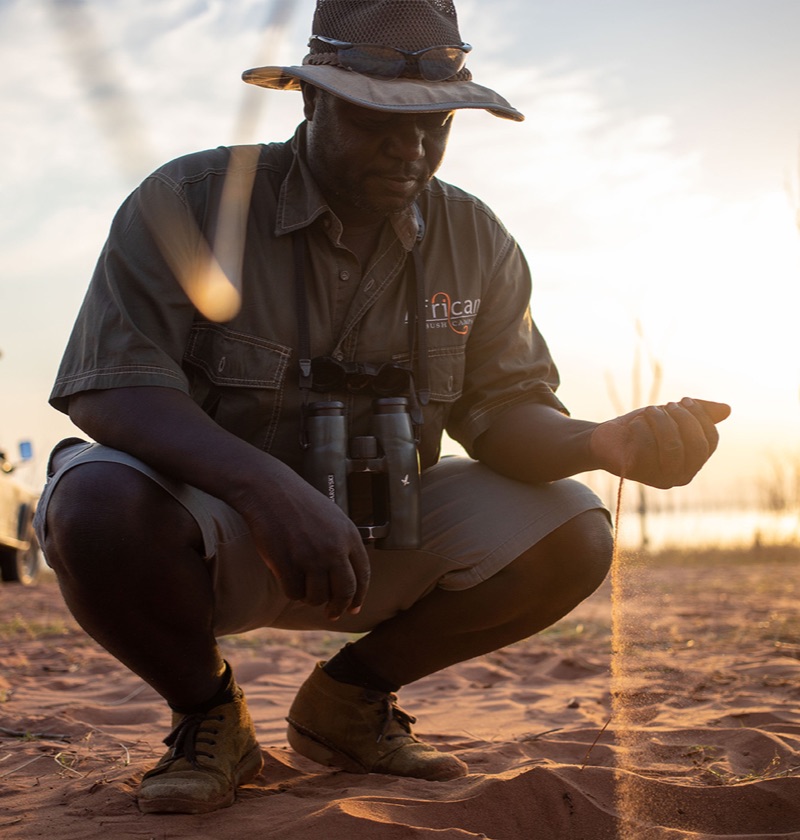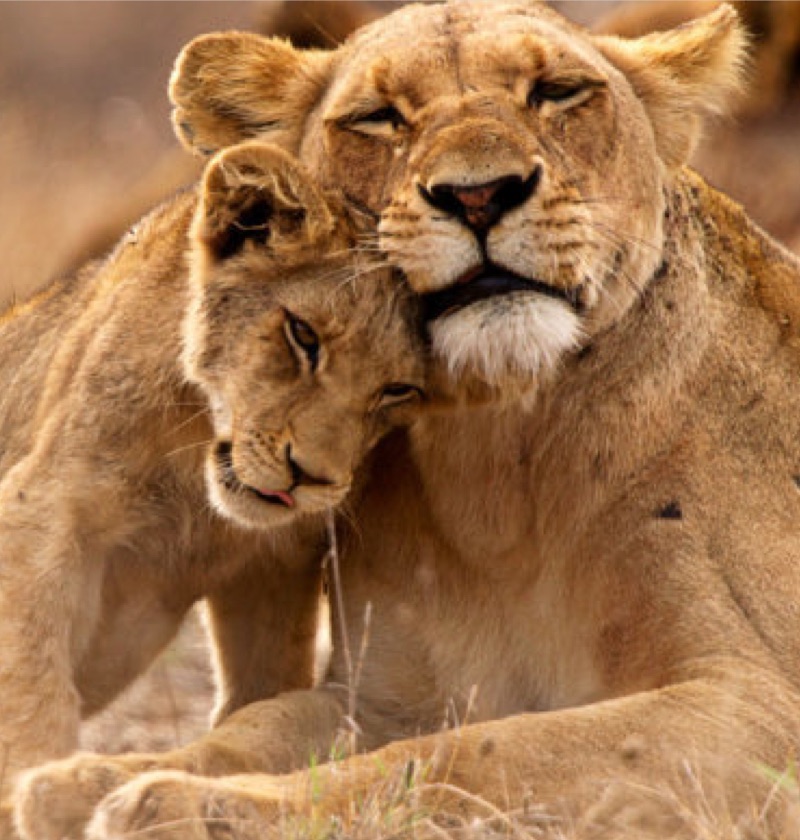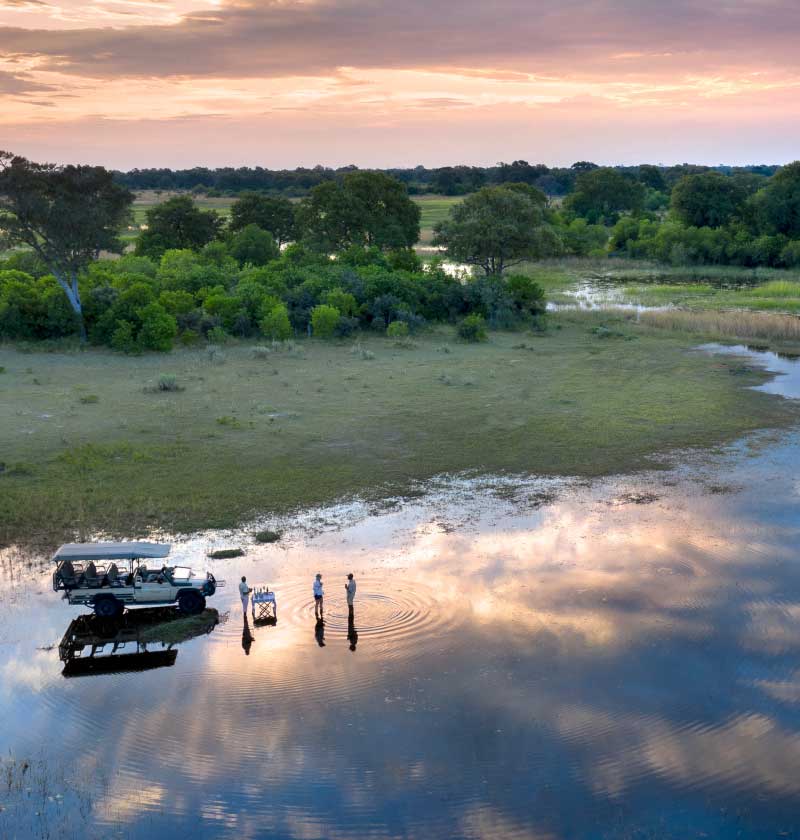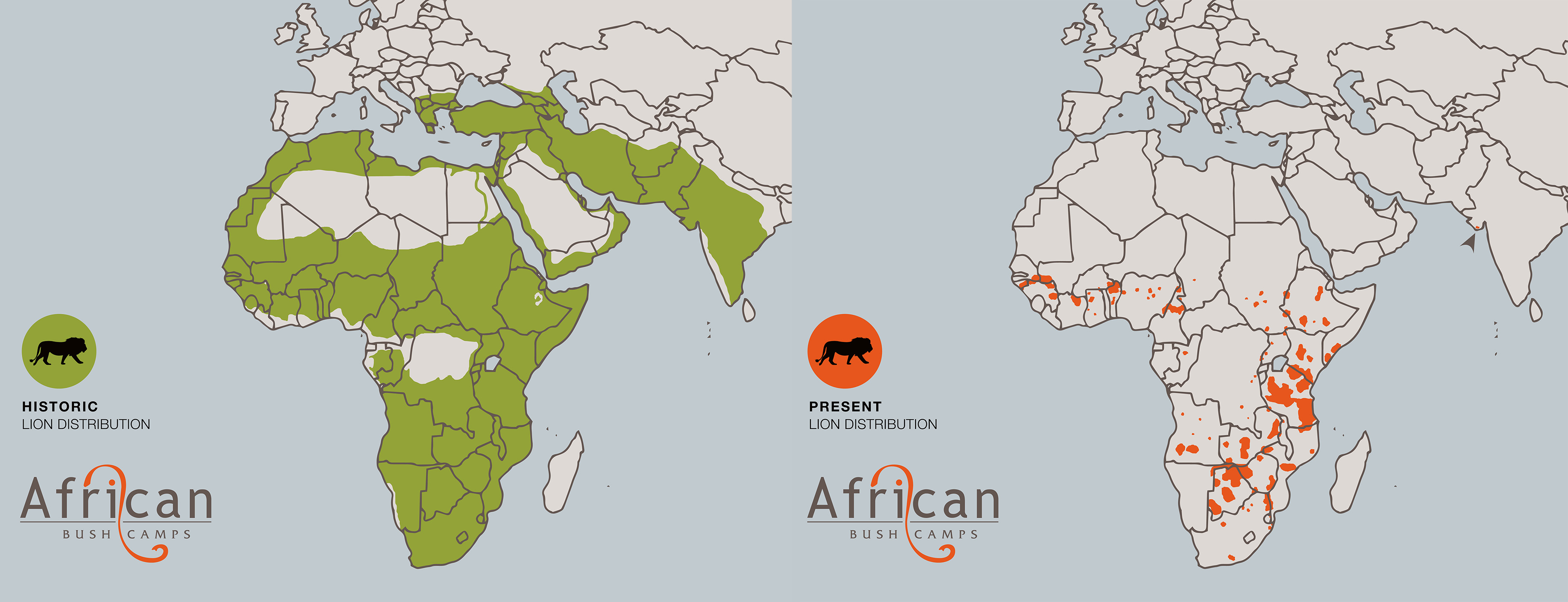Cecil was the famous lion that died at the hand of a hunter… The Rise and Fall of Cecil, Africa’s most famous lion affected many people worldwide and made them aware of the prevailing wildlife conservation crisis. Cecil’s death lead to some advancements in the conservation landscape, but it was only the beginning of a new story; the rest is about the pride he left behind…
The Cecil Effect
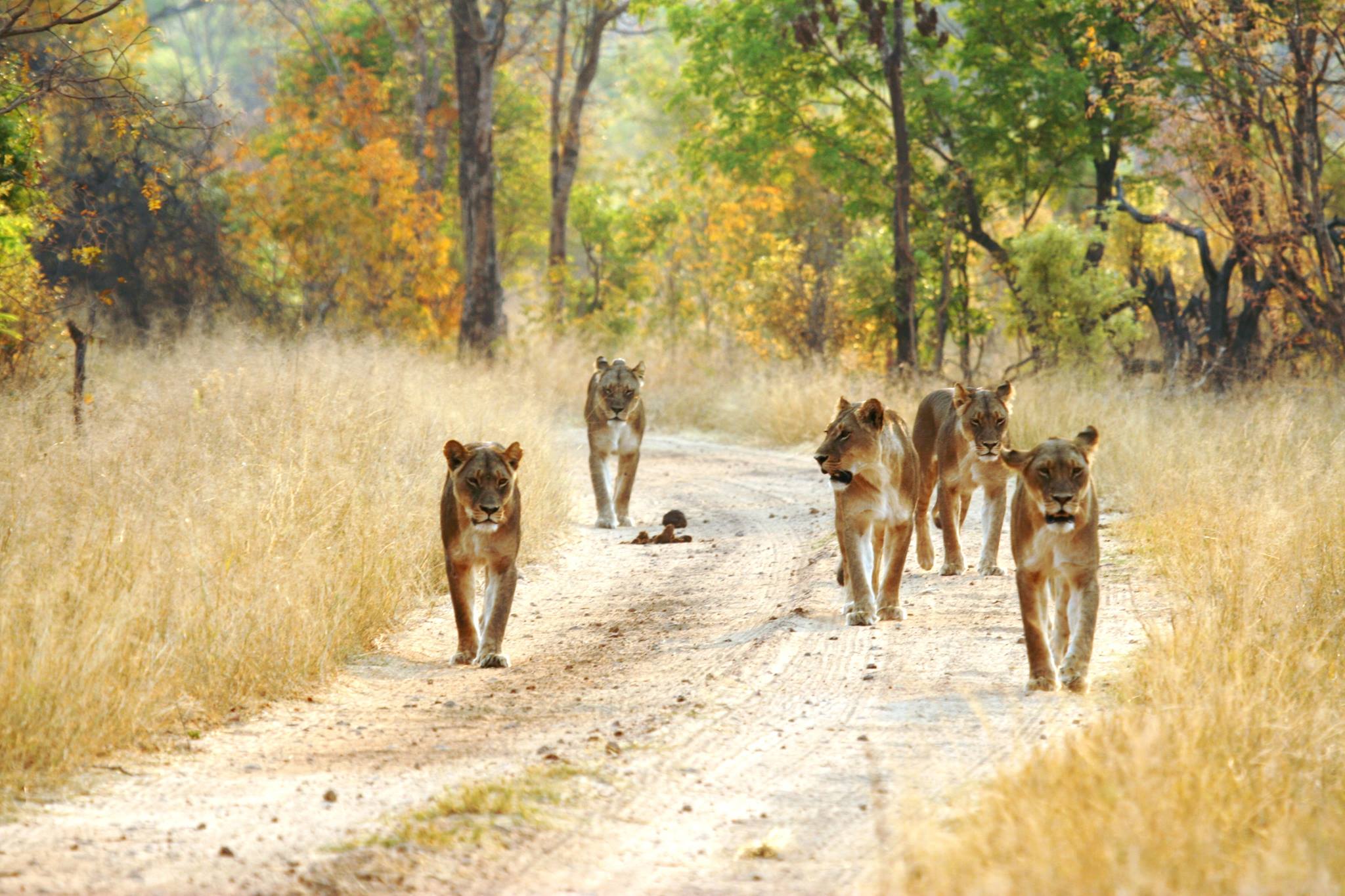
What happened to Cecil’s Pride? Who rules the Somalisa Concession now? Nature waits for no one and Cecil’s pride of seven young cubs were alone and exposed to the elements under the leadership of the dynamic sisters – the Spice Girls. The young cubs could be killed by the many enemies lions have in the African kingdom – hyenas, buffalo, wild dogs, the list goes on, and the risk gets higher every day.
One of the biggest natural threats to the young cubs would be a male lion looking to take over the pride, he’ll kill any cub 9 months or younger. Spiteful, maybe, but also strategic, it’s known as ‘lion infanticide‘, where dominant males kill the young of another male, eliminating gene competition. This instinctively makes the lionesses go into oestrus, meaning she’s ready to mate, strengthening the dominant male’s own genes.
Human population growth has increased unnatural threats to wildlife survival. More people means more need for food and land, resulting in lions and other wildlife facing habitat loss while the land is taken over for industrial or residential areas. This also provokes human/wildlife conflict when lions see livestock as easy targets for food, leading them into a killing frenzy, and eliminating community members’ source of income.
While the death of Cecil was a big blow to conservation, many safari lovers and operators on the ground wanted to do some good for the conservation of lions. This brought about a local initiative within Hwange National Park, called the Conservation & Wildlife Fund (CWF). This initiative aims to ensure that iconic species such as lions, elephants and rhinos survive. By collaborating with the CWF, African Bush Camps, together with other safari operators, is helping to make sure that lion protection is a priority, which is all part of the legacy of Cecil.
This USD 15 per person per night (USD 20 in 2020) levy is included when staying at Somalisa Camp, Somalisa Acacia & Somalisa Expeditions, and it goes directly to the CWF’s work in protecting lions and other iconic animals in Hwange National Park.
Cecil’s Rival, Bhubesi Resurfaces
There we were, around the fire looking to Calvet to hear more of this gripping tale, and he began again, with the new chapter, with just as much enthusiasm for the continuation of the story. About the same time as Cecil’s death in 2015, his former rival Bush was also killed by hunters, leaving his partner Bhubesi without an alliance or territory. He headed towards the Somalisa concession, which was great timing for him as there was no ruling king. But it wouldn’t be that easy to win over the Spice Girls.
He tried to ‘advertise’ in the area with a bone-rattling roar for a chance to take over the pride. The Spice Girls took off, scared that Bhubesi would kill their cubs. The tension started building as Bhubesi searched for them, and they continued to avoid him. There was fear and tension in the air at Somalisa; the lionesses were taking hidden roads and avoiding Bhubesi at any cost, not making a sound, trying to keep their precious cargo safe. This went on for months, until one day…
In September 2016, something changed – for the first time since Cecil’s death, the Spice Girls started walking on the main roads, roaring loud and proud, as if they had a plan in action. The three Spice Girls seemed to have the upper hand in the situation. They needed a male for their pride, so they approached Bhubesi without the cubs.
Calvet, in his animated way, explains how the Spice Girls approached Bhubesi, saying, “You have been trying to get us; we are here today with you, do what you want to do.” They ‘entertained’ Bhubesi and kept him busy for 3 days. Calvet says, “Lions make a roaring sound when they finish mating; Bhubesi couldn’t even make that sound; he was tired, hungry and happy.” And it seemed to have worked because Bhubesi accepted Cecil’s cubs, and they all lived in peace for a while.
In October 2017, the girls went into true oestrous, and unfortunately, as so often happens in the circle of life, the first litter died in January 2018. Finally, one of the lionesses gave birth to a healthy litter of Bhubesi’s cubs in April 2018. The second female, one of the Spice Girls, followed suit, giving birth in November to three sons of Bhubesi; the pride was growing stronger; however, in the African Savannah, competition is always in the air.
Cecil’s Successors, Humba & Netsai
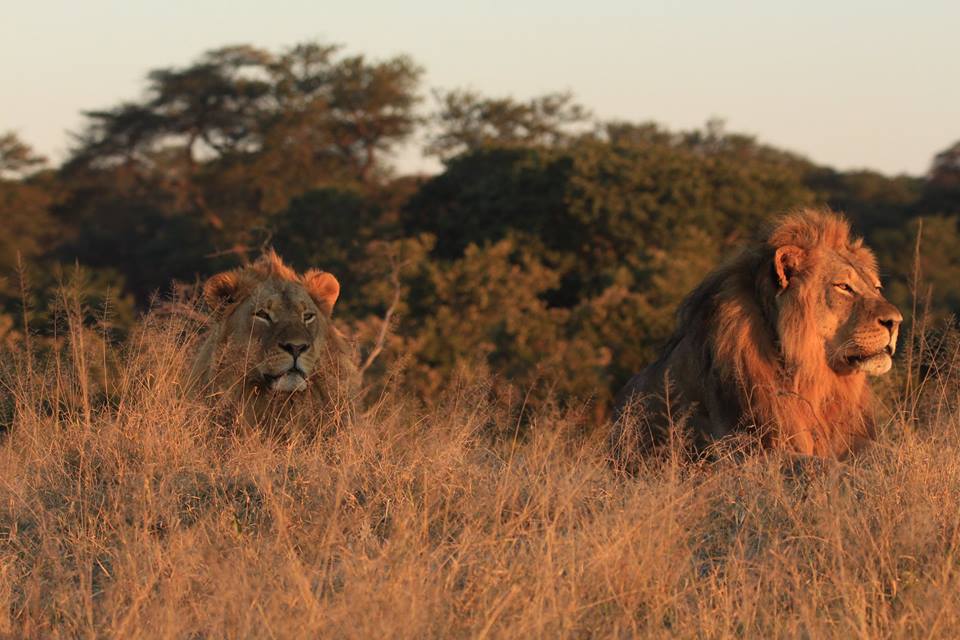
Humba and Netsai were the new boys on the block, large and powerful and growing in strength as Bhubesi started to age. They moved into the territory and ‘advertised’ in May 2018. Bhubesi, not very happy about this, chased them out and stood his ground. They never made contact, but seeing the size of Humba and Netsai, he knew his days were numbered. The boys were persistent and returned only days later; they planned to stay this time. On the 4th of June 2018, Bhubesi and the boys had a stand-off – Bhubesi was protected behind a vehicle, considered the odds stacked against him, and he took his chance to run away, giving up his pride and territory.
Sisi, one of Cecil’s daughters joined Humba and Netsai, and the other daughters followed, leaving Cecil’s sons to roam separately. They were seen teaming up with Bhubesi near the Kennedy 1 Pan. Sisi went into false oestrus, which bonds lions and strengthens trust before they reproduce. This year, two of Cecil’s daughters each had a litter of 3 cubs with Humba and Netsai, extending the family tree of Cecil. Lionesses break away from the pride for up to 3 months to give birth in a secret place to keep the cubs safe from predators and lions.
Sisi recently made headlines when she stalked and grabbed hold of a wild dog, who played dead in her grip and miraculously escaped. Lions and wild dogs are enemies and often compete for food. Lions will kill wild dogs if confronted with each other; because of this, wild dogs tend to avoid lions and their territories. This confrontation occurred before Sisi introduced her cubs back into the pride, so she was probably in a different area, away from the pride, blindsiding the pack. She was on alert, defensive and concerned for the safety of her cubs.
There’s a lot of competition for food, and breaking away ensures that they give their cubs priority of feeding, especially if there are older and stronger cubs. The bond of pride means lionesses care for each other’s cubs after reintroducing them into the pride. In May 2019, the two daughters reintroduced the 6 adorable cubs back into the pride, and with some luck, Somalisa guests could catch this first glimpse of them in April – when the lionesses took down a zebra. The kill gave the cubs their first taste of flesh between their regular suckling.
The new kings, Humba and Netsai, now have a strong pride of 12 – that is still growing by the day. Recently, however, there’s been a shift in power as the Makalolo boys moved into the concession to take it over, which brought on a clash of the titans. Humba fled the scene, leaving his brother to fend for himself and defend their territory. Netsai, thankfully, was strong enough to win the fight still, but he came out worse for wear, with a scar on his eye. Who knows if this could cause a rift in the boys’ dynamics?
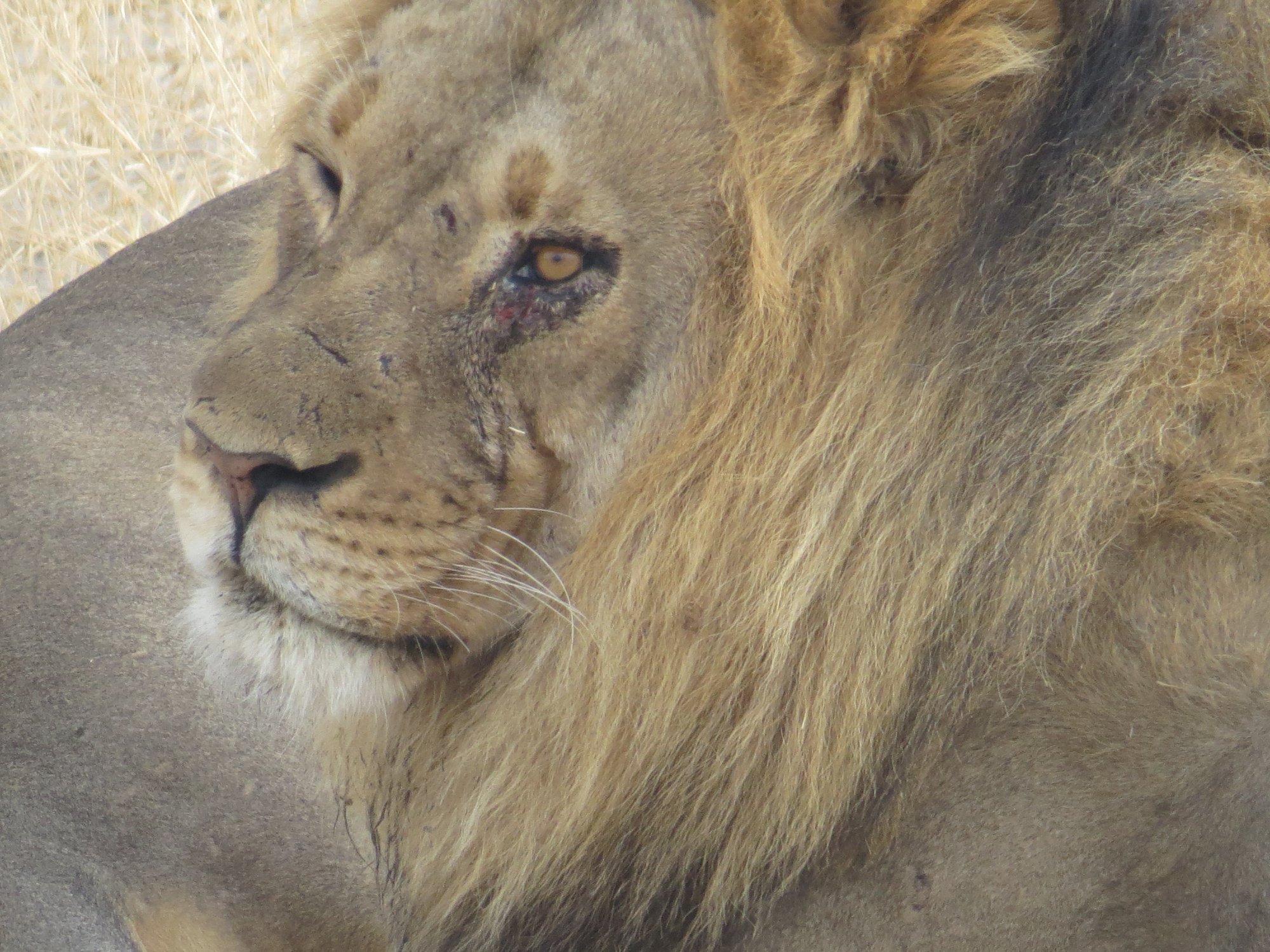 Netsai after as tussle with the Makalolo boys, photo by Calvet Nkomo
Netsai after as tussle with the Makalolo boys, photo by Calvet NkomoAnd so, the legacy of a legend continues. In the animal kingdom, the family is one of the most powerful forces, but in pride, the dynamics often change. Their survival hangs in the balance; strength, politics, power struggles, and human impact all play a role in their future. Cecil’s story changed the landscape of Hwange National Park for these iconic species. Who’ll reign next? Stay tuned to the continuous change and shift of its Legacy of Cecil. #CecilsPride
{{cta(‘a32383bf-7370-447f-bd71-15b7814fd0b7′,’justifycenter’)}}
.png)


